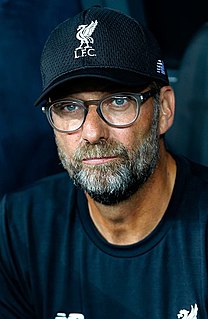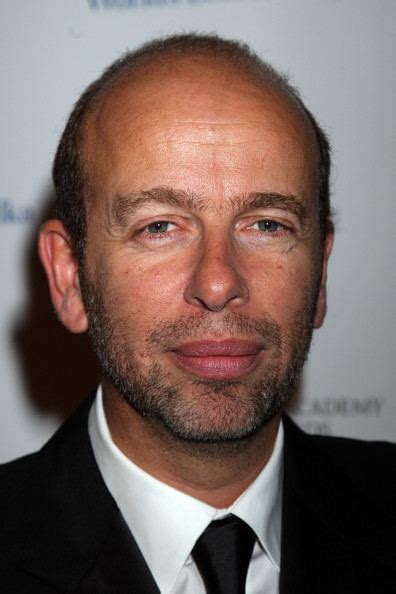A Quote by Daniel Craig
You know, I think the film business is its own worst enemy because it sells movies on DVD footage and 'behind the scenes,' and now it's a real struggle trying to keep storylines and plotlines a secret.
Related Quotes
When I started analysing games in 2001, I had a DVD recorder. I'd be at home watching the games just on a normal TV, watching what I could and trying to figure out what we would be facing a few weeks later. The problem was, in the team meetings, I'd always have to keep going back and forwards with the footage, trying to get to the right part.
If we are to put the era of nuclear terror behind us, we must struggle against the real 'enemy.' That enemy is not nuclear weapons per se, nor is it the states that possess or develop them. The real enemy that we must confront is the ways of thinking that justify nuclear weapons; the readiness to annihilate others when they are seen as a threat or as a hindrance to the realization of our objectives.
I can't say that I am a DVD junkie. I see most films that I want to see in the theater, and so most of my DVD-watching is catching up with the occasional movies that I missed or revisiting a film that I really care about, in which case I really want the extra channels, because it's a movie that I already love, and I want to know more about it.
Now there's always exceptions to that and the reason is if the film doesn't really work, whereas before you could rely on a decent amount of DVD sales to prop up the revenue to ensure that you got out in a decent manner, now if the film doesn't work, the film doesn't work and there's none of that DVD revenue to fall back on and you can lose a huge, huge sum of money on a big budget movie.
I could never be a part of an adaptation of a film where there's pressure to not disappoint the immense fan base. In those cases, they often wind up with filmed books on tape, quite uncinematic. Having said that, I'd say all the adaptations I've done are quite faithful to the original... You have to pick and choose which storylines and plot threads, because you don't have the time to kill in the film as they have in novels. All those pages with detours and plots and different storylines. But films add a lot, and you gotta keep it moving.
When you're doing a film and the majority of the film is cast black, for me, it's most important to get people to view those movies as just movies, as just good movies. At the end of the day, regardless of the color of the cast, we're all doing the same thing in this business: trying to make a good film.
Now I realize that I have to let everyone take what they have to take from the film. No matter what I think about the film, it becomes a little irrelevant. I think I would say that the film is trying to show us that - and I spoke about that earlier - we have to let the teachers invest in their own classroom. There's no use in trying to control everything. Education is fundamental.
I got on Twitter because it was a way to express guitar and surfing, and who I was, but now - it's still fun, and I can do that - but I think it's more of a business. I thought it was a personal thing that actors could do themselves, but now it's become a tool that studios are trying to use to sell their movies.
I like the idea of sitting in a theater with a bunch of people. With technology now, people are getting more and more isolated. I like the community coming around the story. You don't have that with a DVD. People go home, they're tired from work, they can turn it off. It doesn't make you commit the same way, if you can control the movie. More difficult movies, it's too easy to turn them off. All the time, I see movies I know if I had seen it on DVD, I wouldn't have hung with it. If you see it on the screen, you hang with it and it pays off better than a movie you can easily sit through on DVD.
Sometimes you get involved in a film because you just love making movies and you want to keep working. Sometimes you're lucky enough to find something that you really care about. Therefore, now I'm emphasizing developing my own projects and writing my own screenplays, so that I can do exactly what I like to do.


































